The Transcendentalists
By Doc Sherwood
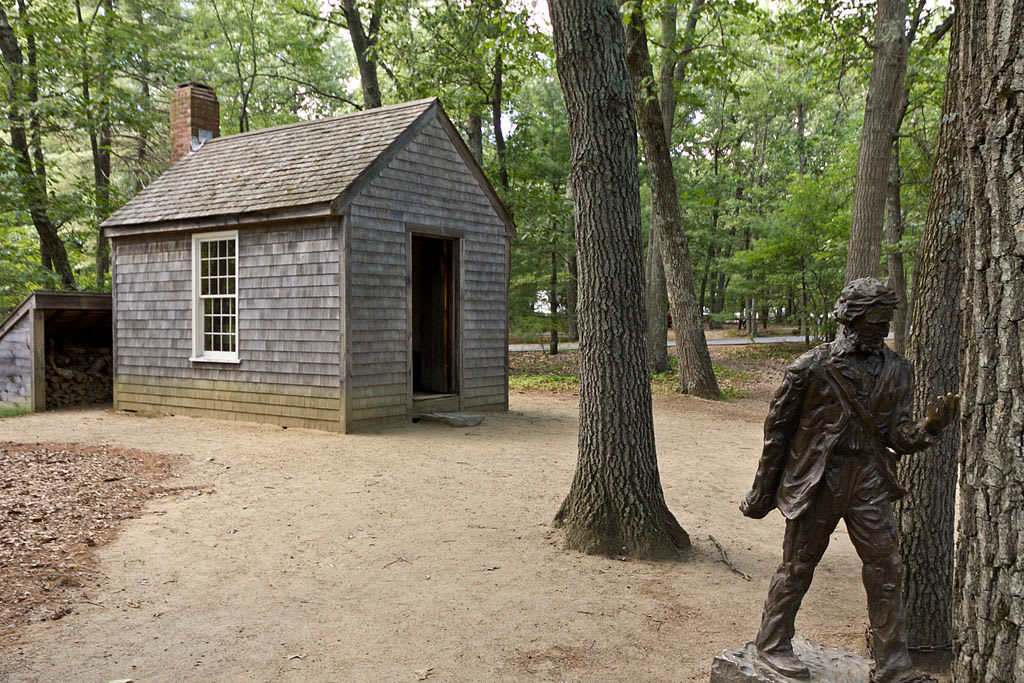
The town of Concord, Massachusetts was where the first gunshots were fired in the Revolutionary War. On April the 19th 1775, more than a year before the Declaration of Independence was signed, British troops marched on Concord to seize a cache of weapons hidden there. Local residents and farmers, alerted mere hours in advance by Paul Revere and William Dawes, organized into a militia now known as the Minutemen and met the British with armed resistance. In a firefight at Concord’s Old North Bridge, the advancing troops were turned back.
Stephen Allen Fender writes of “a quasi-mystical body of progressive thinkers who in the 1830s began another revolution in Concord,” sixty years after the War of Independence. That body was called the Transcendentalists, and in 1836 its central figure, Ralph Waldo Emerson, linked the Concord of the Revolutionary past with that of his present day through a commemorative poem delivered on the unveiling of Concord’s monument to the Minutemen. “The shot heard round the world” has been described as the most famous line in Emerson’s entire body of work.
The Old Manse in Concord, which stands within sight of the battlefield, was for a time Emerson’s childhood home and later the residence of Nathaniel Hawthorne.
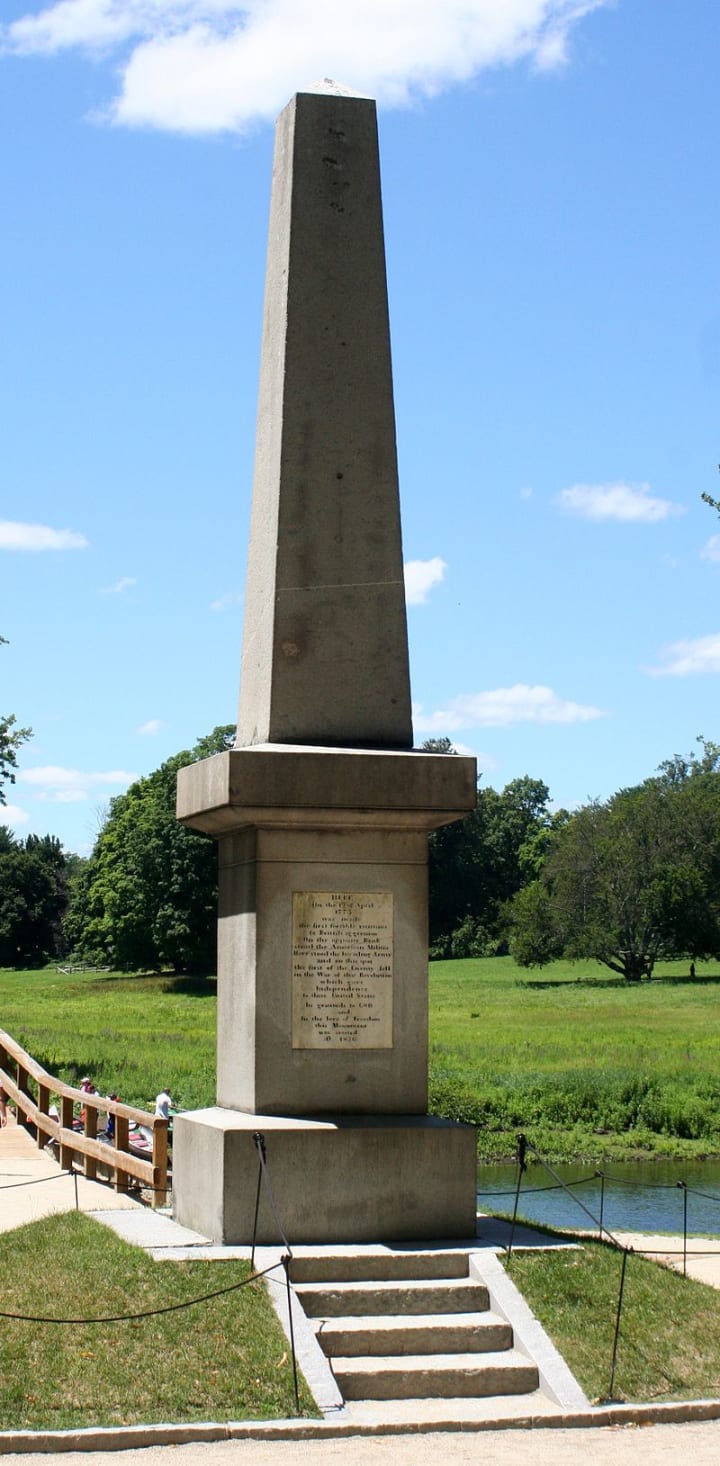
Following a brief and unsuccessful career in the Church, Emerson in 1833 travelled first to Europe and then Britain where he met several respected writers of the Romantic Period, including Coleridge, Wordsworth, William Landor and Thomas Carlyle. The last-named would prove an especially significant influence on Emerson, and they stayed in contact for the remainder of their lives. On returning to the United States, Emerson began to formulate the ideas that would ultimately consolidate into the philosophy of the Transcendentalist movement. These found expression in 1836 when Emerson published his landmark essay ‘Nature’, described by Chris Baldick as “virtually the manifesto of American Transcendentalism.”
The inspirations for this ideology were the German scholar Emmanuel Kant and the British Romantics such as Carlyle whom Emerson had encountered, and its principles best understood as a prioritizing of instinct and feeling over received knowledge, and the rejection of organized religion in favour of the divinity perceived in each individual human being. Emerson’s New England Puritan ancestors, who believed in direct access to God without the priests or church hierarchies of Roman Catholicism, were also a source.
In point of actual writing technique, Emerson is usually considered an acquired taste. John Morley commented on his “difficult staccato” and the “visible feeling after epigrams that do not always come.” This is seen in Emerson’s most notorious passages, perhaps in particular his line from the opening of ‘Nature’ where he speaks of transforming into a “transparent eyeball!” Even Carlyle, Emerson’s staunchest supporter, remarked of his prose:
“For me it is too ethereal, speculative, theoretic; I will have all things condense themselves, take shape and body, if they are to have my sympathy.”
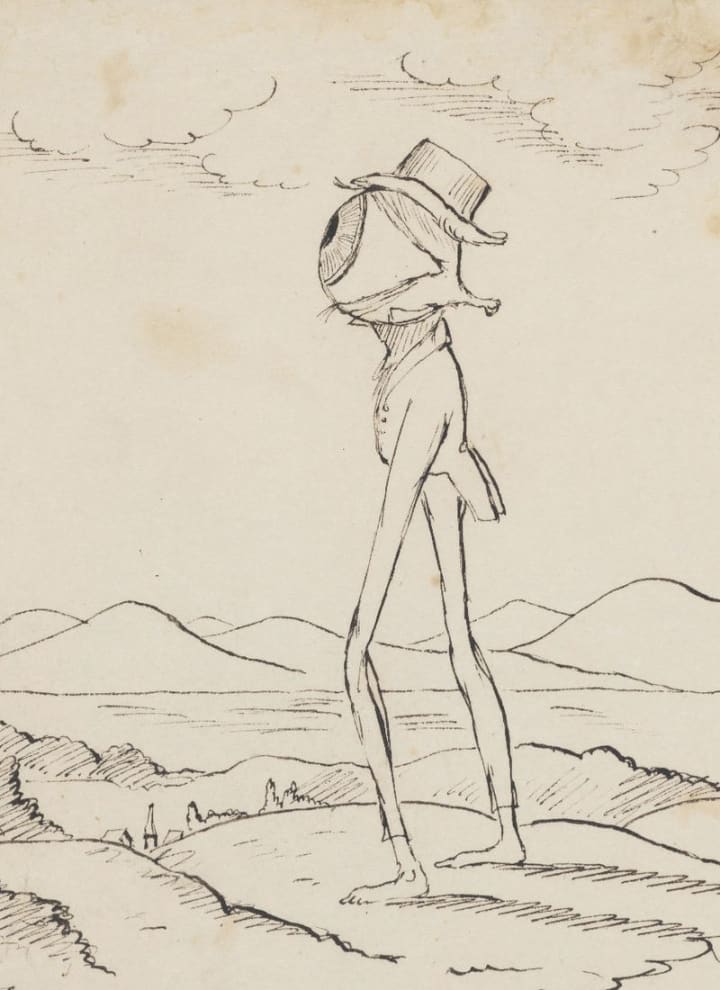
Other prominent Transcendentalists were Henry David Thoreau, Margaret Fuller (editor of The Dial, a Transcendentalist newspaper, though the success of this publication was limited), Elizabeth Peabody, Orestes Brownson, William Ellery Channing and Amos Bronson Alcott, whose daughter Louisa May Alcott would later write the noted American children’s story Little Women. Authors influenced by the movement include Hawthorne, Melville and Whitman.
Opposition to Transcendentalism (and indeed the very name was first applied in scorn) took a predictable enough line. Any movement that privileges feeling and spirituality leaves itself vulnerable to the criticism that day-to-day existence must also include harsh realities, but in the case of Transcendentalism these arguments are unfair. Emerson and his contemporaries were in fact extremely active in applying their ideas to specific causes, as Stephen Allen Fender remarks:
“Because it was philosophically so diffuse, Transcendentalism could be channelled into any variety of practical (or at least real-life) programmes for public improvement.”
Fuller and Peabody campaigned for women’s rights, Brownson for better working conditions, and Alcott for educational reform. The Brook Farm utopian commune in Massachusetts was also a Transcendentalist project. Lastly, Emerson and his friend and neighbour Henry David Thoreau (whose writing career Emerson supported) were firmly opposed to the then still-existing practice of slavery.
Thoreau risked arrest by harbouring and assisting escaped slaves fleeing the South, and was actually jailed in 1846 for refusing to finance the slave-States with his taxes. His essay on non-violent protest, ‘Civil Disobedience’ (1849) was to become an inspiration to some of the greatest political activists of the Twentieth Century, including Mahatma Gandhi and Martin Luther King. Thoreau’s most famous book however, and probably the single most acclaimed literary work to emerge from the Transcendentalist movement, is 1854’s Walden.
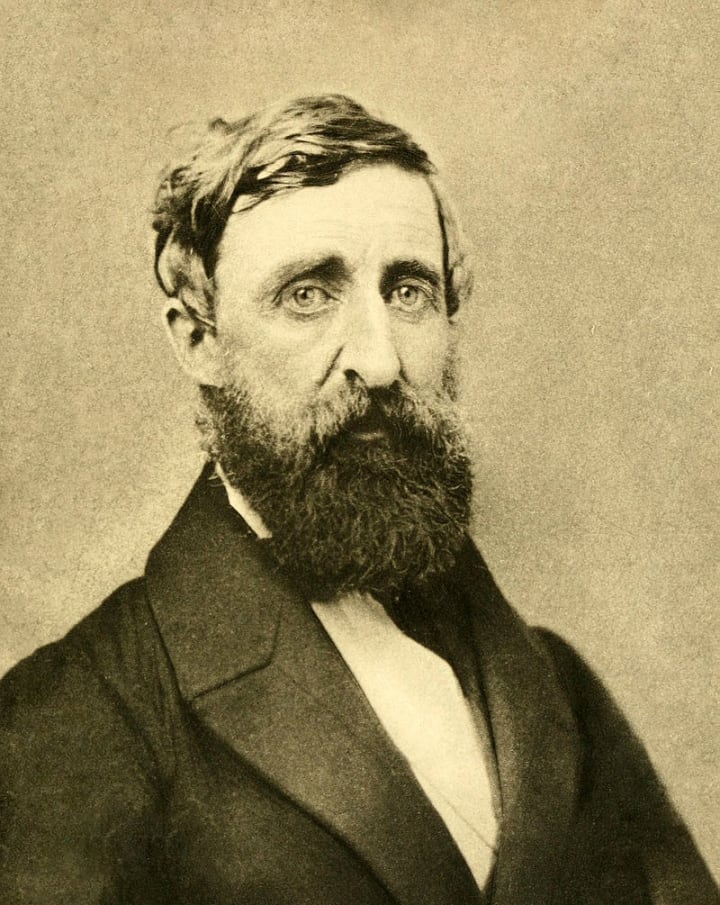
In 1845 Thoreau built for himself a cabin in the woods close to Walden Pond, one and a half miles from Concord’s town centre. The land in fact belonged to Emerson, who allowed Thoreau to camp there on condition he tended the grounds and planted new trees. Walden is a party-fictionalized account of the years between 1845 and 1847, during which Thoreau lived intermittently in his cabin. The book is described by Chris Baldick as an “autobiographical sermon against modern materialism,” while Stephen Allen Fender says of Walden:
“In the United States it remains the central canonical text in that ongoing project to define and reinforce the American character known as ‘American literature.’ A recent survey of American professors found that they considered Walden by far the most important Nineteenth-Century text to teach their students – well ahead of The Scarlet Letter or Moby-Dick.”
The idea of making a return to nature was central to most of the Romantic-era poets who had influenced Emerson, and his essay ‘Nature’ along with Walden are foremost among the reasons why Transcendentalism is sometimes referred to as “American Romanticism.” So, although the Transcendentalist movement met with early opposition from some, it can be observed that Emerson and Thoreau have nevertheless exerted between them a lasting influence on world politics and literature.
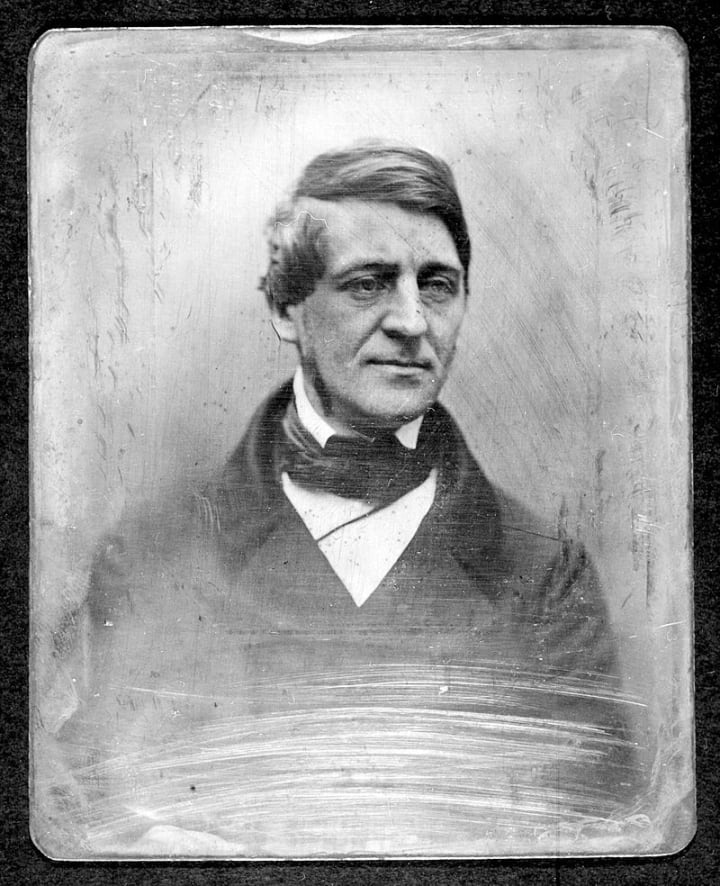
After ‘Nature’, Emerson’s most significant essay is usually considered to be ‘The Man Thinking; or, The American Scholar’, which was delivered at the anniversary celebrations of a Harvard University literary society in 1837. The qualities of courage, independence and faith in one’s own convictions, here expressed by Emerson, are central to conceptions of American manhood to this day. Meanwhile, in his championing of “language which the field and work-yard made,” Emerson is once again taking his cue from Wordsworth.
More specific to the United States however is Emerson’s complicity in certain sentiments first expressed by St Jean de Crèvecoeur in his Letters from an American Farmer (1782). This early work of American literature argues that civic value is grounded on the economics of farming, and ownership and enterprise are inseparably linked. Stephen Allen Fender observes not only that Letters from an American Farmer was a prime influence on Thomas Jefferson’s Democratic-Republican party, but also that the work introduces “founding assumptions of American identity.” Although Emerson in ‘Nature’ and elsewhere is hostile to some of de Crèvecoeur’s assertions, here he might seem a wholehearted supporter. In the words of Paul S. Boyer, Emerson in his essay:
“...deplored Americans’ slavish intellectual deference to Europe and called for a confident national culture based on American experience.”
The second revolution to come out of Concord was indeed underway.
About the Creator
Reader insights
Outstanding
Excellent work. Looking forward to reading more!
Top insights
Compelling and original writing
Creative use of language & vocab
Easy to read and follow
Well-structured & engaging content
Excellent storytelling
Original narrative & well developed characters
Expert insights and opinions
Arguments were carefully researched and presented
Eye opening
Niche topic & fresh perspectives
Heartfelt and relatable
The story invoked strong personal emotions
Masterful proofreading
Zero grammar & spelling mistakes
On-point and relevant
Writing reflected the title & theme



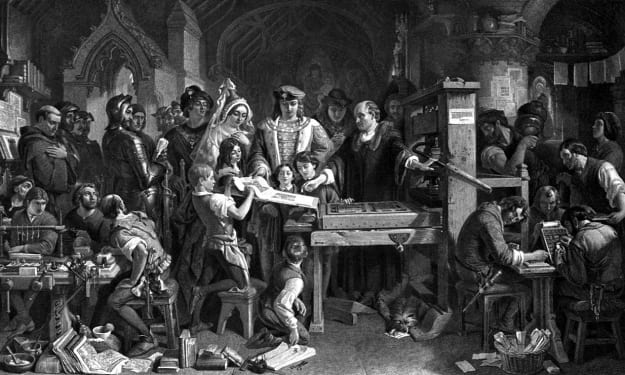



Comments (13)
Asa lover of both Emerson and Thoreau I truly appreciated this well procured navigation through a complicated time in American history. I wonder who would be considered today's Emerson and Thoreau? Now a seed for further exploration!
This is an informative overview of the historical significance. You have effectively tied together the events of Revolutionary war with the later Transcendentalist movement giving the town's rich history legacy an another look. It also includes a literary element making it an intriguing read and though history is not my favourite subject but this still very interesting to read. Great job Doc! Congrats on the Top Story, it is well-deserved.
https://vocal.media/history/whispers-of-history-rpqh0fj5
Nice story 👍
Impressive, informative, ,and interesting!!! Loving this!!!♥️♥️💕
J-Doc - From a British Scholar Teaching American History in China/with a schprickle of German Philosophers - You are our in-house 'Transcendentalist' Thank you for this amazing offering. J-Bud
Very interesting. Thanks for sharing, Doc.
This is great!! Also, reminds me I need to publish my weird Henry David Thoreau poem
Such a great walk through influential writers and thinkers. I also enjoyed the inclusion of the eyeball sketch!
Whoaaaa, I never knew about any of this! I learned so much today from you and it was so fascinating to read!
Nice essay about a little covered time period. I hadn't known the romanticism of Thoreau was part of the larger intellectual movement of Transcendentalism at the time. Really enjoy these historical deep dives explaining the nuances and competing factions & ideas of a time instead of the simplified one note versions we learn in school. Researching a story last year, I learned the American revolution was so much longer and more complicated (with perhaps 2/3 of the country still supporting the British) than I thought,
Doc, as always, this is excellent. Emerson is one of my favorite writers. Yes, there could be some grandiloquent segments in his essays and his poetry was a little subpar, but overall, he had a style that was quite unique for the time. I sometimes wonder if Gibran didn't try to emulate it. (As you probably know I am also a huge fan of the latter.) I was introduced to the Transcendantalists decades ago, when I was at university, studying to become a teacher in France. Emerson's words made my heart skip a beat, and I felt as though I was transported elsewhere. Actually, I still have the book that we bought for the course and often open a random page to peruse. Thank you for bringing a smile on my face with your wonderful story.
very informative.